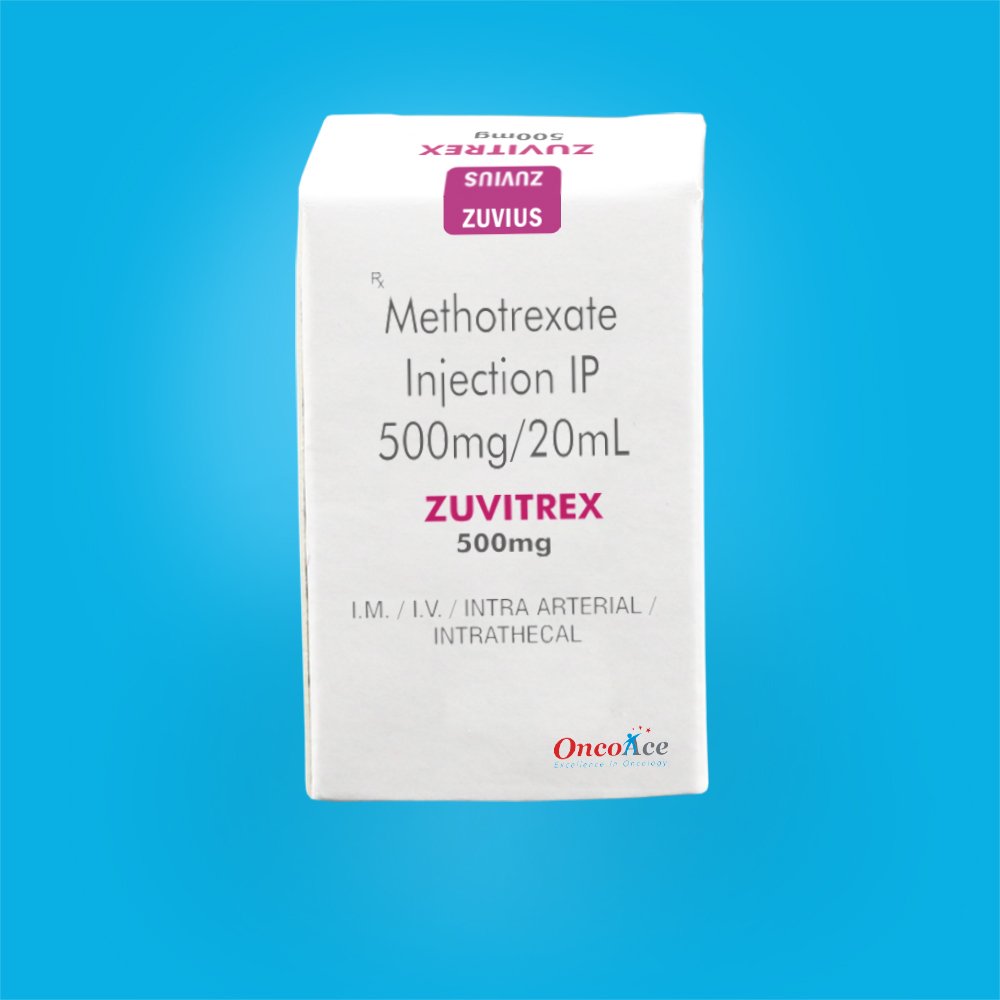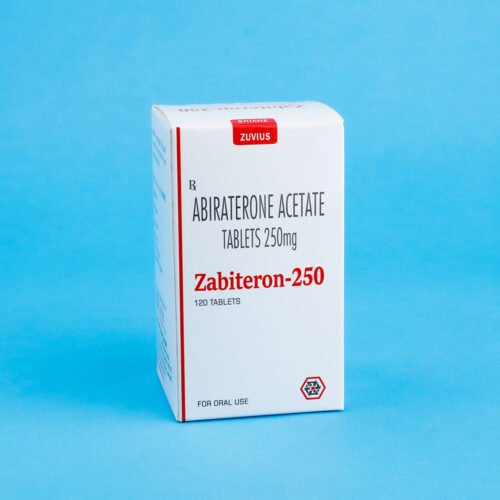Zuvitrex- Methotrexate Injection 500 mg Inj
Methotrexate Injection
Strength: 500 mg
Pack Size: vial
Drug Class: Antineoplastic Drug, Antimetabolite
Dosage and Administration:
- For intravenous use only. Not for intrathecal use.
- Verify the concentration prior to preparation and administration to avoid overdosage
- Verify pregnancy status in females of reproductive potential before starting
Methotrexate Injection.
- See full prescribing information about monitoring and concomitant therapies
for intermediate- and high-dose regimens.
- Acute Lymphoblastic Leukemia: The recommended dosage of Methotrexate
- Injection varies from 10 mg/m2 to 5000 mg/m2 intravenously as part of a
combination chemotherapy regimen.
- Non-Hodgkin Lymphoma: The recommended dosage of Methotrexate
- Injection varies from 1000 mg/m2 to 8000 mg/m2 intravenously.
- Osteosarcoma: The recommended dosage of Methotrexate Injection is
typically, 12 grams/m2 (maximum: 20 grams per dose) as an intravenous
infusion over 4 hours followed by leucovorin rescue in accordance with high.
Cold Storage: no
- Methotrexate is a folate derivative that inhibits several enzymes responsible for nucleotide synthesis.1This inhibition leads to suppression of inflammation as well as prevention of cell division.1 Because of these effects, methotrexate is often used to treat inflammation caused by arthritis or to control cell division in neoplastic diseases such as breast cancer and non-Hodgkin’s lymphoma.
- Methotrexate Injection is a folate analog metabolic inhibitor indicated for the treatment of:
- Adult and pediatric patients with acute lymphoblastic leukemia as part of a combination chemotherapy regimen.
- Adult and pediatric patients with non-Hodgkin lymphoma.
- Adult and pediatric patients with osteosarcoma as part of a combination
chemotherapy regimen.
Limitations of Use: Methotrexate Injection is not indicated for non-oncology diseases.
In a Canadian doubleblind randomized trial, 18 patients with active RA were treated with 12.5 mg oral MTX and 17 patients with 50 mg parenteral gold for 6 months. The patients improved significantly but there was no major advantage for In another Canadian trial 20 patients were treated with 10mg oral MTX and 50 mg aurothiomalate, respectively
Pregnancy, Breast-feeding: Methotrexate should be avoided during pregnancy, especially during the first trimester. Adequate contraceptive measures should be advised if either partner is undergoing Methotrexate treatment.
Breastfeeding: Mothers receiving Methotrexate should refrain from breastfeeding due to potential harm to the nursing infant.
Fertility: Methotrexate may lead to suppression of ovarian function, with reports of amenorrhea following therapy. In males, azoospermia has been observed after receiving Methotrexate, typically after cumulative doses exceeding a certain threshold. Some recovery of spermatogenesis has been noted in patients post-treatment.
Teratogenicity: Similar to other cytotoxic agents, Methotrexate carries a potential risk of teratogenic effects.
This medicine may cause organ system toxicity. Call your doctor right away if you have the following symptoms: a fever, confusion, diarrhea, dry cough, irritability, neck stiffness, seizures, severe skin rash, sleepiness, trouble breathing, weakness, vomiting, or problems with coordination.






